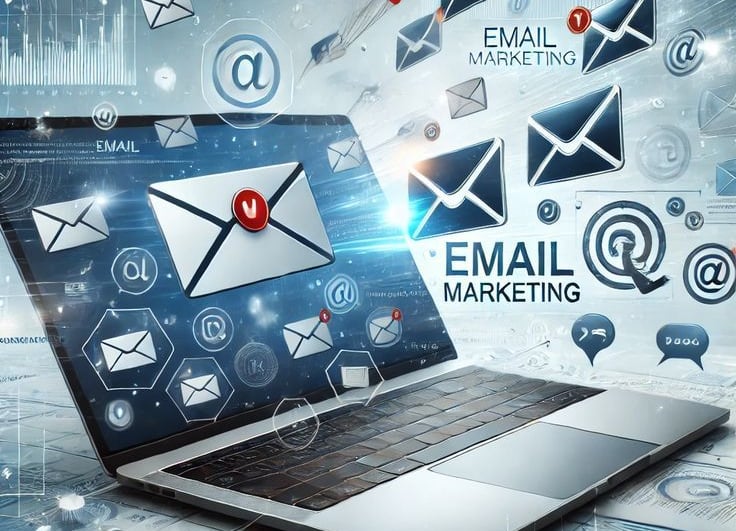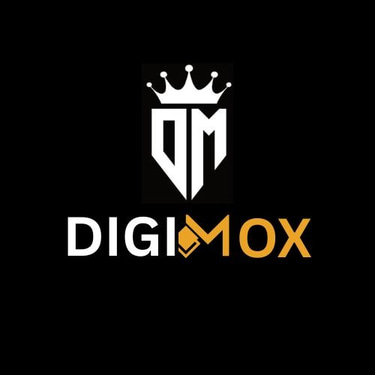Understanding Email Marketing: Types, Uses, and Benefits
8/12/20255 min read


Email Marketing — Why It Still Wins Hearts (and Customers)
There’s something personal about email. Even as new apps and social platforms come and go, our inbox stays — like an old friend who’s always there. It’s where travel confirmations live next to birthday wishes, and notes from favorite brands sit beside family updates. Email marketing is not just alive; it’s thriving. And anyone ignoring it is missing out on the most direct route to real human connection and customer trust.
But before we go deeper, let’s start with the basics — what is email marketing?
Simply put, email marketing is a way for businesses or creators to connect directly with people who want to hear from them. It’s storytelling through messages — a digital handshake that builds relationships, trust, and loyalty over time.
If you’ve ever wondered what is email marketing and how does it work, here’s the truth: it works by sending personalized, valuable emails to people who have willingly shared their address with you. Each email builds a little more connection, a little more trust, and eventually — results.
So grab a coffee. Let’s walk through why email marketing still matters, how to start, and how real people are using it to grow with honesty and heart.
Email Marketing: Not Just Another Tactic
Imagine you own a cozy bakery. You bake your heart out every morning, and customers drop by for their favorite muffins. Now picture this — you send your regulars an email about a new pumpkin spice flavor, maybe share a funny story about your first baking disaster. They smile, reply, and next weekend, some walk in saying, “We came because of your email!”
That’s email marketing in its simplest, most beautiful form. It’s not about filling inboxes with noise — it’s about connection. It’s how small brands build big communities.
When people ask what is email marketing and how does it work, it’s not just algorithms or automation — it’s about warmth. It’s about sending a message that feels human, not robotic.
Whether you run a tech startup, a fitness studio, or a flower shop, one truth stays the same: treat your subscribers like friends, not leads.
More Than Mass Messages
Most people start with basic newsletters — maybe an update about new products or just a “hello” every month. Over time, email marketing becomes a space for storytelling, sharing behind-the-scenes moments, and celebrating customer milestones (“You’ve been with us one year — thank you!”).
And if you’re just starting, you might be wondering how to learn email marketing — the best way is simple: start small. Subscribe to your favorite brands, watch how they write, then try it yourself. Write the way you talk, experiment, and see what feels right.
There’s no secret formula — just your authentic voice and consistency.
Why Email Marketing Still Works
Social media changes every day. Algorithms hide your posts. Ads come and go. But email — that one personal message that lands in someone’s inbox — cuts through all the noise.
It’s measurable, customizable, and incredibly affordable. Even small businesses can build powerful campaigns with little cost. That’s why learning what is email marketing and mastering it is worth every second — because when done right, it delivers real results that last.
The Four Pillars (or Types of Email Marketing)
Let’s talk about the types of email marketing every business uses — and how they help you build lasting relationships.
1. Newsletters: Staying in Touch the Right Way
Think of a newsletter as your brand’s heartbeat. It’s how you keep the conversation going — whether you’re sharing updates, tips, or just a story from your week.
The best newsletters don’t sound like marketing; they sound like friendship. Keep it consistent — weekly, biweekly, or monthly. Over time, your readers will start looking forward to hearing from you.
2. Promotional Emails: Inspiring Action, Not Annoyance
We all love a good deal — but we hate being spammed. The smartest brands use promotional emails with care. They make subscribers feel special — like giving early access, sneak peeks, or exclusive offers.
Done right, these types of email marketing drive excitement and loyalty. It’s not about pushing a sale; it’s about rewarding people who care.
3. Transactional Emails: Small Touches, Big Trust
These are the behind-the-scenes heroes — order confirmations, shipping updates, thank-you notes. They might seem ordinary, but they leave lasting impressions.
A simple, warm “Your order’s on the way — we’re so excited for you!” can make someone smile. These moments build trust faster than any fancy ad.
4. Re-Engagement Emails: Bringing Back Lost Friends
Every list has people who drift away. Re-engagement emails are gentle reminders — “We miss you!” or “Want to see what’s new?”
It’s about honesty, not pressure. Some will come back, some won’t — but the respect you show matters more than the numbers.
The Heart of Email Marketing: Real Tips That Work
1. Know Your People
Don’t write for “everyone.” Write for real humans — your customers, your community, your people. Gather emails ethically. Never buy lists. Grow naturally, and your connection will be stronger.
2. Nail the Subject Line
Think of it as your first impression. Honest and playful beats clickbait every time. Try curiosity, humor, or warmth — and always keep it short.
3. Keep It Mobile-Friendly
Most people read emails on their phones. Use short paragraphs, easy fonts, and clear buttons. If your email looks messy on mobile, you’ve already lost half your audience.
4. Personalize Beyond the Name
“Hi, [Name]” is just the beginning. Pay attention to birthdays, past purchases, or preferences. Suggest something based on what they love — that’s true personalization.
5. Offer Real Value
Don’t just sell — share. Tips, stories, behind-the-scenes moments, customer highlights — these make your emails worth reading.
Best Email Marketing Tools (and Why They’re Loved)
Mailchimp: Simple and perfect for beginners.
Constant Contact: Easy to use with event and survey features.
Sendinblue: Great for automated and transactional emails.
GetResponse: Advanced tools for growing businesses.
These tools help beginners understand how to learn email marketing through easy templates, automation, and real-time analytics.
Real Challenges, Real Solutions
Deliverability Drama
Spam folders are the enemy. Keep your list clean, avoid shouting in all caps, and always use genuine subject lines.
Privacy and Respect
Be clear about how you use data. Always let people unsubscribe easily. Respect builds loyalty.
Subscriber Fatigue
If engagement drops, switch things up. Add humor, gratitude, or new formats. Sometimes a heartfelt “thank you” is more powerful than a promotion.
What’s Next: The Future of Email Marketing
Automation will get smarter. Personalization will get deeper. But one thing won’t change — humans crave connection.
No AI, no algorithm can replace a warm, honest message written by a real person. That’s the soul of email marketing — it’s not about selling, it’s about relating.
So, when you ask what is email marketing and how does it work, remember: it works when it feels human.
Human Success Stories
The Yoga Studio: Sent motivational emails every Monday. Soon, students looked forward to them more than the classes.
The Family Café: Shared recipes, funny stories, and personal updates. Their community grew faster than ever.
The Freelancer: Shared struggles, tips, and wins — and built genuine friendships with clients.
That’s what email marketing looks like when it comes from the heart.
Getting Started (You’ll Learn Fast!)
Pick a beginner-friendly platform.
Grow your list honestly.
Write five real emails — a welcome, a story, a tip, an offer, and a thank-you.
Encourage replies and conversations.
Keep learning, experimenting, and enjoying the process.
That’s truly how to learn email marketing — not from textbooks, but from trial, error, and real human connection.
Conclusion: Email Marketing Is for Humans, Not Robots
The best emails don’t feel like marketing. They feel like care — a friend checking in, a voice you trust.
If you ever forget what is email marketing, remember this: it’s the art of showing up in someone’s inbox with warmth, honesty, and intention.
Write like you’re talking to someone who matters — because they do. That’s why email marketing continues to win hearts, build trust, and create real human stories, one message at a time.
